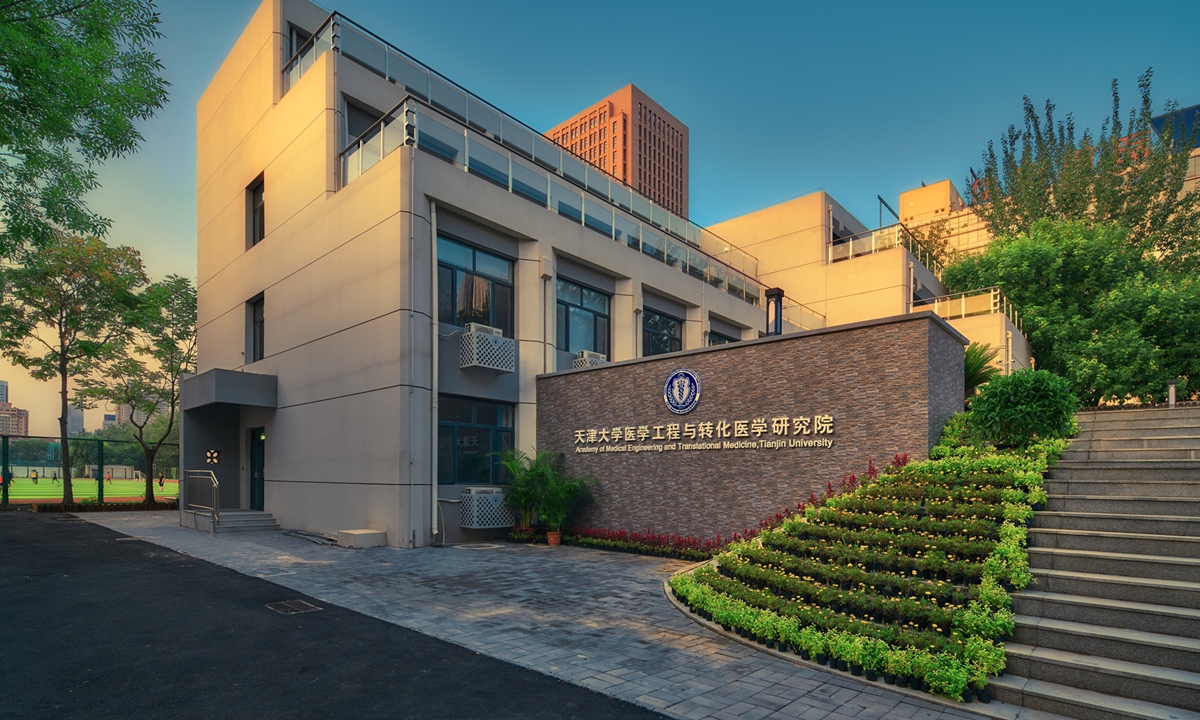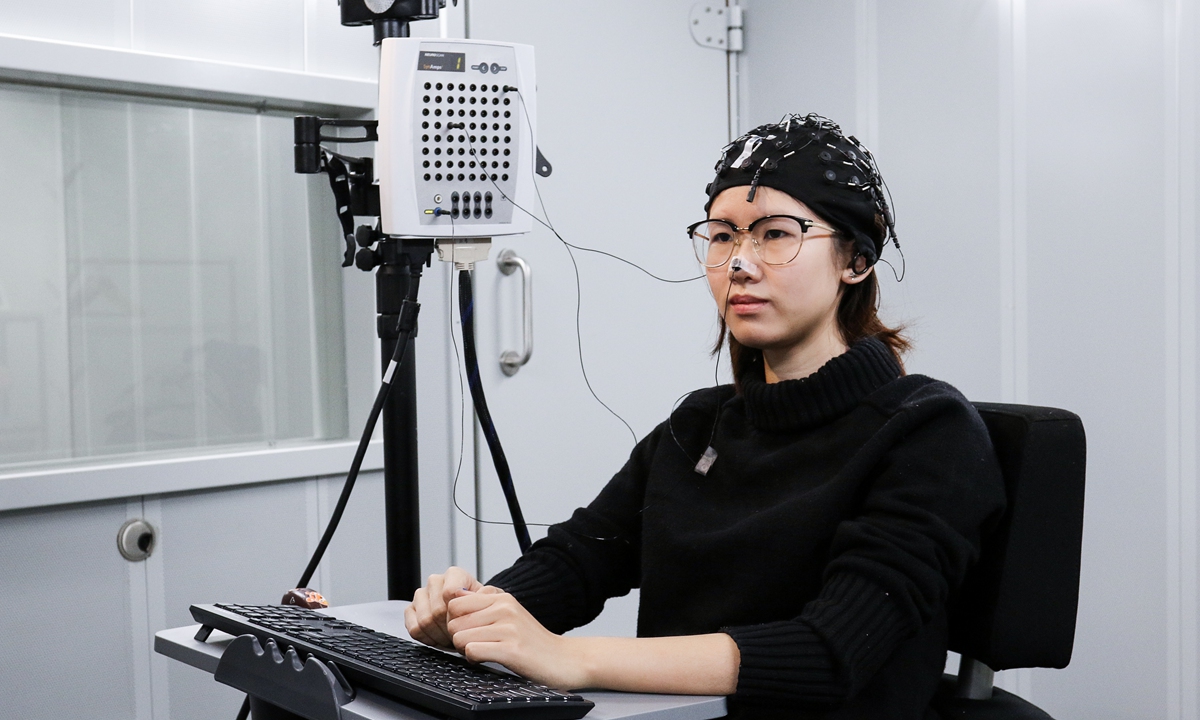Tianjin University strives to advance brain-computer interface tech
Source: Global Times Published: 2020/11/22 17:33:40

Academy of Medical Engineering and Translational Medicine of Tianjin University Photos: Courtesy of Tianjin University

A woman uses BCI technology to type on a compute. Photos: Courtesy of Tianjin University
This kind of "mental typing" is an application of brain-computer interface (BCI) technology, which has become known as the "information highway" for communication between the human brain and the physical world. It is a brand-new technology that establishes an information output channel between the human brain and a computer or other electronic devices that does not rely on conventional neural pathways.
In August 2019, Wei Siwen, a graduate student of Tianjin University's Neural Engineering and Rehabilitation Laboratory, won the BCI Brain-Controlled Robot Competition and the Third China BCI Competition at the 2019 World Robot Conference with a decoding speed of 691 bits per minute.
The speed that people type on the phone is about 600 bits per minute, while Wei decoded and output 691 Chinese characters per minute by using the "mind."
The Tianjin Brain Science Center (TBSC), stemming from Tianjin University's Academy of Medical Engineering and Translational Medicine, and its af?liated Huanhu Hospital, is one of the ?rst units in China to conduct neuro-engineering research. The team is committed to neuroscience, brain-inspired intelligence, human-machine interface as well as medical applications, and strives to protect people's lives and health through science and technology.
In 2016, during the manned flights of Tiangong-2 space lab and Shenzhou XI, two Chinese astronauts completed a historic experiment: the world's first BCI performance in human history on Earth and in space. The development of this experimental system was completed by the team from TBSC.
"The ideas from our brains are usually expressed through peripheral nerve tissue or muscle tissue. But BCI could bypass such normal pathways and make a direct connection between people's brains and computers," said Ming Dong, director of the Office for Development of Medicine Disciplines and dean of the Academy of Medical Engineering and Translational Medicine at Tianjin University.
In the treatment room of the Rehabilitation Department of the Tianjin Hospital, 47-year-old patient Wang Yang uses the rehabilitation robot system developed by TBSC to carry out wrist function rehabilitation with his "mind." After more than three months of treatment, he is now able to perform a wrist rotation, ankle dorsiflexion and many other actions that could not be done before.
At present, BCI has been used in medical rehabilitation, aerospace and other fields.
Posted in: PRESS RELEASE,CHINA FOCUS